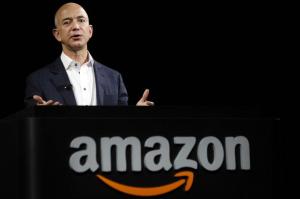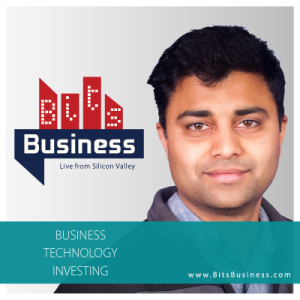Jeff Bezos and Amazon
— November 19, 2014 Amazon is synonymous with the word “e-commerce” .Its website attracts millions of customers and generates billions of dollars in revenue. Amazon is part of our culture today and it’s hard to imagine that 20 years back e-commerce was still in its infancy and Amazon did not exist.
Amazon is synonymous with the word “e-commerce” .Its website attracts millions of customers and generates billions of dollars in revenue. Amazon is part of our culture today and it’s hard to imagine that 20 years back e-commerce was still in its infancy and Amazon did not exist.
Amazon was founded in 1999 by Jeff Bezos. He was a young entrepreneur who quit his well paying job at investment firm D.E. Shaw & Co and founded an online book store. Amazon was started with an initial investment of $300,000 from his parents. Unlike many internet companies Amazon was not located in Silicon Valley.
Amazon was different from most other companies that started during the dotcom era. Bezos was instrumental in defining Amazon’s culture. In the book “The Everything Store – Jeff Bezos and the Age of Amazon” written by Brad Stone, Jeff Wilke, one of the senior executives describes Amazon as a “scaffolding” to magnify the thinking embodied by Bezos, to the greatest possible extent. Here are some of the key principles that define Amazon based on his quotes and interviews.
Customer centricity
Jeff Bezos on Amazon’s focus on customers.
“Every project should start with customers and then is worked backwards”
“If our interests are aligned with our customers.. in the long term it will be good for our customers and Amazon”
“Any customer service agent can pull a product off the shelf if it has issues and is not satisfying our customers”
Frugality
In “The Everything Store – Jeff Bezos and the Age of Amazon” the author has summarized Bezos’ views on this topic
We try not to spend money on things that don’t matter to customers. Frugality breeds resourcefulness, self-sufficiency and invention. There are no extra points for headcount, budget size or fixed expense.
In an interview with Amazon’s CTO Werner Vogels , Bezos explained the reality of operating in a low-margin, high-volume business.
Operating a low margin business is hard. High margins will cover a lot of sins and hence it will not force you to be efficient. It takes a certain mindset and culture to operate at low margins and keeps you aligned with your customers
Being Contrarian
Employees are encouraged to respectfully challenge decisions when they disagree, even when doing so is uncomfortable or exhausting. Bezos believes group thinking and social cohesion would stifle innovation and breed complacency driving the company towards extinction.
He prefers intensity over a friendly atmosphere . He encourages passionate often heated debates over cordial consensus. Some of his famous quotes on this topic are
“If you only do things where you already know the outcome, your company goes away.”
“Our culture is friendly and intense. But if push comes to shove, we’ll settle for intense.”
“You must be willing to be misunderstood if you are going to be innovative”
Long Term Thinking
According to Bezos time horizons matter a lot. In an interview he said
If we “humans” think long term, we can accomplish things we wouldn’t otherwise accomplish. If I want you to solve world hunger in 5 years, you would rightly decline the challenge, but if I asked you to solve world hunger in 100 years, now that’s a different more interesting challenge and all we have done there is change the time horizon.
According to Danny Hills, polymath inventor, computer engineer, and designer of the 10,000 year clock.
The notion that one can accomplish a huge amount with a large time frame, if he is steady about it, is Jeff’s fundamental philosophy. For , Jeff , Amazon was a multi-decade project and he approached it from the very beginning with that long-term vision.
Everything Store to Everything Company
Jeff Bezos is on a mission to build an “Everything Store” through which he would like to sell physical goods,digital media,mobile devices, computing power and more. He first formed this vision when he was working at D.E Shaw & Co. but instead of working on his grand vision like many Internet startups of the dotcom era, he focused on one narrow segment, books and built a monopoly around this neglected segment.
In his book “Zero to One” Peter Thiel emphasizes the importance of focusing on small market segments while building a startup. He describes how PayPal, Facebook and other great companies started by focusing on a small market segment, monopolized it and expanded into other segments. Amazon is a classic example of this principle in action.
Over the past decade Amazon has established itself as a force in the high tech industry along side Apple and Google. The company aggressively expanded beyond retailing by introducing e-readers, phone, tablet, search, AWS, Echo and more. It’s hard to guess what’s coming next, but it’s safe to assume that as long as Jeff Bezos is leading Amazon the company will continue to innovate, expand and dominate many market segments while guided by its core principles.

2 Comments
Fantastic post Hari! Keep’em coming!
Thanks Stig! Look forward to your show on “The Everything Store”